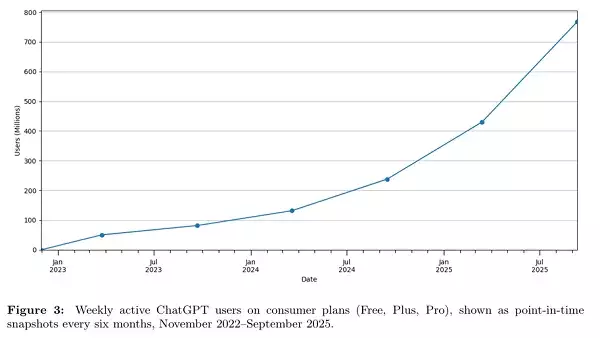The meteoric rise of ChatGPT from a niche technological innovation to a global phenomenon underscores a profound shift in how society perceives and interacts with artificial intelligence. With an astonishing leap from a million users at the end of 2022 to over 700 million weekly active users today, the platform exemplifies the transformative potential of accessible, conversational AI. This surge is not merely about numbers; it signals a cultural transition where AI tools are becoming integrated into everyday life, challenging traditional search engines and information sources.
This rapid proliferation indicates that people are increasingly embracing AI as a primary interface for problem-solving, learning, and productivity. Unlike traditional applications that require technical expertise or specialized interfaces, ChatGPT’s natural language interaction lowers barriers, democratizing access to AI-driven support. Its ubiquity is poised to impact every facet of personal and professional decision-making, shifting power away from static information retrieval to dynamic, context-aware assistance.
Shifts in Usage Patterns: From Writing to Informed Decisions
Examining the evolving nature of ChatGPT’s use reveals a fascinating narrative of changing user priorities. The data indicates that although writing and content creation initially held a significant share—peaking at 36% in July 2024—they have declined to around 24% a year later. Conversely, seeking information has almost doubled its share, growing from 14% to 24%. This transition highlights an intriguing phenomenon: AI is emerging less as a creative tool and more as a sophisticated search companion that caters to the human desire for quick, reliable knowledge.
Such trends suggest that users are increasingly viewing ChatGPT as an alternative to traditional search engines like Google, especially for specific, targeted queries. Rather than navigating multiple tabs or sift through search results, users find value in conversational interaction that synthesizes information into digestible formats. This paradigm shift raises important questions about the future of digital discovery—will AI-driven conversations replace traditional search, or will they coexist as complementary tools? Regardless, it is evident that AI’s role as a catalyst for informed decision-making is expanding rapidly.
The Nuanced Roles of AI: More Than Just Asking or Doing
The report’s classification of ChatGPT applications into asking, doing, and expressing reveals how users are diversifying their interactions with AI. Asking and seeking information dominate, emphasizing a fundamental human desire to understand and make sense of the world. Interestingly, the proportion of “doing” tasks—such as writing emails or coding—appears to be decreasing over time. This suggests that while AI remains a credible assistant for routine tasks, users increasingly prefer it as a knowledge partner rather than an automation tool for task execution.
This behavioral shift might reflect a broader philosophical view: AI as an extension of the human intellect rather than merely a tool to offload work. The decrease in “doing” indicates a possible reorientation, where users seek to leverage AI for insights and decision support rather than simple task delegation. Additionally, a segment of usage that involves personal reflection (“expressing”) points towards a nuanced relationship with AI—one where it acts as a conversational confidant, aiding in self-understanding and introspection.
Implications for Society and the Future of AI Integration
The evolution of ChatGPT’s utilization underscores a more profound societal transformation—one where artificial intelligence becomes a trusted, integral part of everyday cognition. Its role in guiding decisions, providing practical insights, and assisting with discovery underscores its potential to elevate human capabilities, fostering more informed, creative, and autonomous individuals.
However, this also raises critical questions about the nature of reliance on AI. Will increased dependence foster a more informed society, or could it lead to complacency, where critical thinking diminishes in favor of quick answers? As AI becomes more embedded into daily routines, its ability to genuinely enhance human agency will determine whether this technological surge results in empowerment or dilution of independent thought.
Ironically, while early predictions valorized AI as a revolutionary creator, current usage data suggests a more cautious, pragmatic approach—users are turning to AI primarily for understanding and decision-making rather than creative output. This evolution highlights a nuanced landscape: AI’s greatest strength may lie in amplifying human judgment rather than replacing it, guiding us toward more intentional and mindful interactions with technology.

